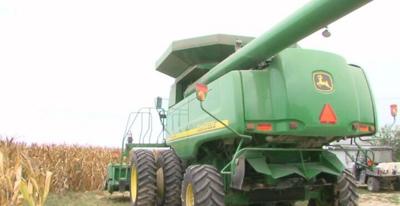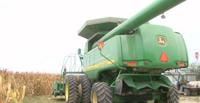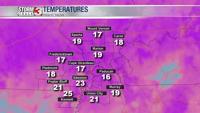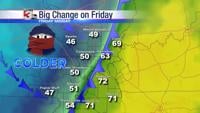(WSIL) -- This National Farm Safety and Health Week, one local farmer shares with News 3, the steps he takes to prevent an issue that he is always concerned about this time of year.
John Kabat is a farmer in Jefferson County, but also an Ag Teacher who tries to instill safety into his students.
"Don't get too tired, because if you get too tired, you can't think. Make sure you've got enough to eat, because the fatigue is going to be from eating or sleeping."
Here recently, when he's not teaching, he's waiting for his corn to dry so he can start harvesting.
"That stalk, everybody's saying, why aren't the farmers getting the corn out of the field or the soybeans, well that stock looks dead, it's dried down, it's been four months since it was planted..."
He says even though the crop looks dry and withered, the moisture levels in the corn are still too high for harvest and storage.
"...but that seed has to be put down in the grain bin, put in there at 15%."
While waiting for the corn to dry from it's current 21% moisture level, Kabat is making sure his combine is ready to go.
He says harvesting can be a fire risk without a properly maintained machine.
"Well I think the number one thing is after each day, you've got to blow that engine off. Make sure you get all the hot spots, where the bearings are at, the engine's at, make sure you blow those areas off."
In addition to keeping problem areas free of debris, Kabat tries to limit unnecessary sources of heat, like friction.
"But make sure those bearings are greased, some are seal bearings, some aren't, and make sure you do that, and I think check all your belts, and also your chains, make sure the chains are set right so they're not flopping too much and causing a lot of friction."
And after the all the prep-work, he says it's important to continue to closely monitor the equipment.
"Temperature check every bearing, to make sure that no bearings are going out, the ball bearings are going out."
"Last year we had a bearing that went out underneath there, and we knew it didn't sound right, and we caught it before it caused a fire."
Now that it's harvest season, Kabat also asks that drivers be mindful of farm equipment on highways and country roads.
He adds that most farm equipment can't travel more than 25 miles per hour.














